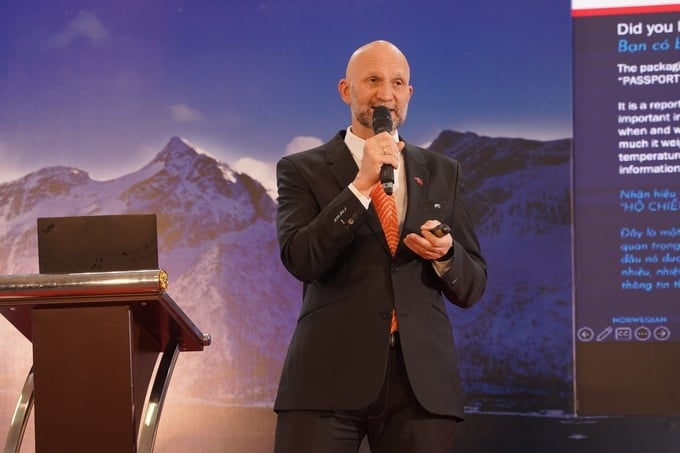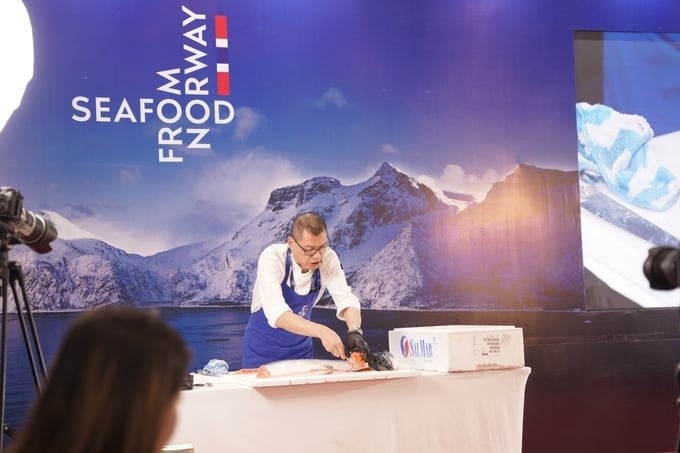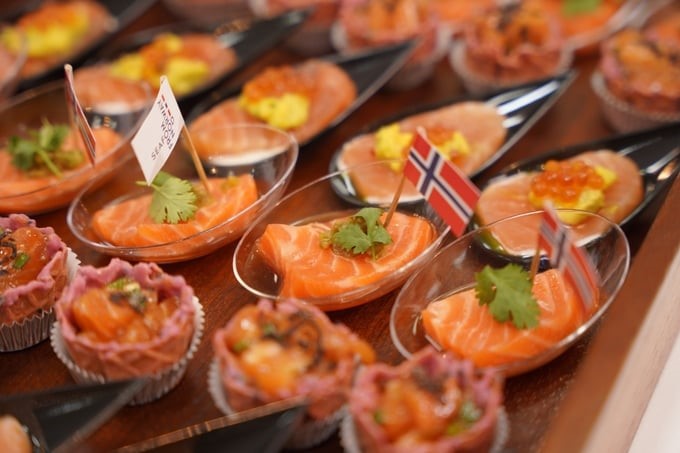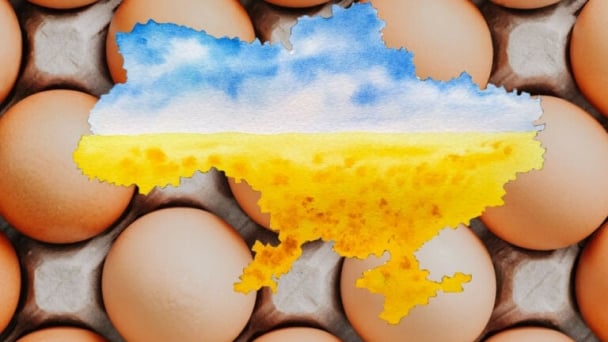May 21, 2025 | 04:08 GMT +7
May 21, 2025 | 04:08 GMT +7
Hotline: 0913.378.918
May 21, 2025 | 04:08 GMT +7
Hotline: 0913.378.918
The Norwegian Seafood Council (NSC) has just participated in the Vietfood & Beverage—Propack 2023 Exhibition in Hanoi. This is the first time NSC has participated in this event, emphasizing NSC's commitment to strengthening connections and promoting trade cooperation in the seafood field between Norway and Vietnam.
Upholding innovation and cooperation opportunities, NSC's exhibition booth at Vietfood & Beverage - Propack 2023 offered opportunities for Norwegian seafood exporters to introduce diverse products with world-leading quality. At the same time, it gave Vietnamese partners the opportunity to discover new suppliers and expand their business network.

Dr. Asbjørn Warvik Rørtveit, Southeast Asia Regional Director of the Norwegian Seafood Council, said: "The foundation of the Norwegian seafood industry is a commitment to responsible development and maintaining a natural balance in the environment." Photo: Hong Tham.
This is also the first time that eight of Norway’s leading seafood producers and exporters have come to Vietnam, including Salmar, Seaborn, Leroy, Coast, Cape Fish, Hofseth, Pure Norwegian Seafood, and Star Seafood, to directly participate in NSC's activities and promote cooperation opportunities with potential partners in the Vietnamese market.
One of NSC's key activities at this exhibition is the "Salmon Academy", where participants have the opportunity to listen to the sharing of Dr. Asbjørn Warvik Rørtveit, Southeast Asia Regional Director of NSC. Dr. Rørtveit’s sharing has comprehensive, in-depth content about Norway's salmon farming process with strict regulations and world-leading advanced technology.
Dr. Rørtveit explained in detail the outstanding characteristics of Norwegian salmon on the market. In addition to the characteristics of fresh taste, delicate texture, and high nutritional value, Norwegian salmon products all come from a commitment to sustainable development practices and the integration of advanced technologies.
Event attendees also enjoyed an attractive culinary demonstration program with famous Chef Jimmy Chok from Singapore.

Famous Chef Jimmy Chok from Singapore gives culinary demonstrations, processing Norwegian salmon into attractive dishes. Photo: Hong Tham.
Taking Norwegian salmon as the focus, chef Jimmy shared profound understanding, from the historical background of this delicate seafood species to the essential techniques for handling salmon, ensuring quick transportation from the supplier to the restaurant or retailer, thereby preserving freshness.
After profound sharing as a delicate "appetizer", Chef Jimmy served attendees dishes that were made from Norwegian salmon, had excellent taste, and were prepared by himself. The dishes included fresh Norwegian salmon with butter and herb oil; diced Norwegian salmon with soybean rice wine, Kombu (kelp), and scallion; and Norwegian salmon with Yuzu soybean, Jalapeño chili, and cilantro.
Speaking at the event, Dr. Asbjørn Warvik Rørtveit emphasized the fundamentals of the Norwegian seafood industry. He said that “The foundation of the Norwegian seafood industry is a commitment to responsible development and maintaining a natural balance in the environment. Our goal is not only to provide Vietnamese consumers with a reliable, high-quality seafood source but also to promote cooperation in protecting marine ecosystems and contribute to ensuring long-term sustainability for the seafood industry".

Norwegian salmon has long been famous for its quality and taste. Photo: Hong Tham.
In September 2023, Norway exported 8,988 tons of seafood to Vietnam, worth USD 23.7 million. This data shows an increase of 16% in volume and 28% in value compared to the same period last year.
According to statistics from the beginning of the year until now, Vietnam has imported 42,242 tons of seafood from Norway, worth USD 142 million. This increased by 8% in volume and 23% in value compared to the same period last year. The above-mentioned data shows that the demand for consumption is increasing, along with the population size and increase in income of Vietnamese consumers.
“Therefore, Vietnam is an attractive market for Norwegian seafood exporters and always maintains its position as the leading Norwegian seafood importer in Southeast Asia. In the coming time, NSC is committed to working closely with Vietnamese businesses to increase economic value while maintaining the assurance that Norwegian seafood present in Vietnam always has world-class origin and quality,” Mr. Asbjørn affirmed.
As the second-largest seafood exporter in the world, with a coastline stretching more than 101,000km, Norway provides 40 million seafood meals daily to 150 countries across the globe. The Norwegian seafood industry sets responsible marine resource management as its core and transforms from unrestricted fishing to strict regulations and setting standards to manage marine resources sustainably.
Translated by Huyen Vu Thu

(VAN) Oliyar, a prominent Ukrainian oil and fat manufacturer, has revealed plans to build a farm for 2.3 million laying hens in the Lviv region. The additional production quantities promise to change the competitive landscape of the egg market of the Eastern Europe region.

(VAN) On May 15, Ministry of Agriculture and Environment of Vietnam hosted the 'Connecting Vietnam - Germany agricultural, forestry and fishery trade' seminar in Berlin, Germany.

(VAN) In the face of counterfeit and imitation products, Khanh Hoa Salanganes Nest Company hopes for the prompt completion of the legal framework, strict enforcement against violations, and protection of the bird’s nest brand.

(VAN) Japan's efforts to lower the price of rice through the release of its stockpile may finally be making some progress, albeit at a snail's pace.

(VAN) U.S. tariffs are not only a 'shock', but also an opportunity for Vietnamese businesses to renew their mindset toward comprehensive development.

(VAN) As Bac Giang lychee enters the harvest season, Minister Do Duc Duy expects that the fruit will contribute greatly to agricultural exports due to standardized production and deep processing.

(VAN) Consumers have shown a preference for free-range eggs, but those farming systems are more vulnerable to biosecurity risks like bird flu.